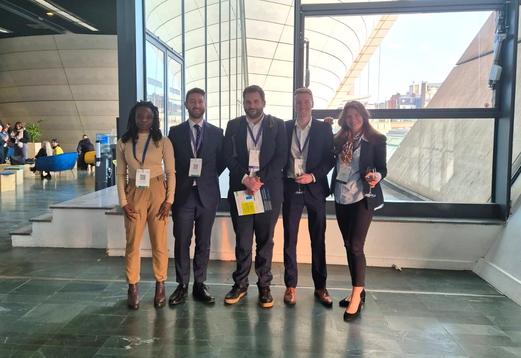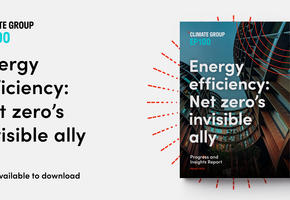Decarbonising the steel and concrete sectors, and driving the energy efficiency of corporate and public buildings, are among Climate Group’s key priorities – that is why our team was out in force at last week’s Buildings and Climate Global Forum in Paris. Together we, alongside our members, called for urgent, targeted action across governments and businesses to bring about change at scale and pace. Only through collaboration, supported by strong policies, can we reach the goals we need to reach by 2030.
Read below for our expert reflections on the forum and its outcomes.

Toby Morgan, Senior Manager Built Environment, Climate Group - Increasing energy efficiency and renovation rates essential to reach the built environment’s climate goals
Energy efficiency was at the forefront of international discussions last year – at the G20 in New Delhi, and at COP28 in Dubai, governments pledged to double to global annual rate of energy efficiency, increasing it from 2% to over 4%, every year until 2030. In this respect, the Declaration de Chaillot is very welcome as it reiterates the importance of this landmark commitment, and underscores the critical role of the built environment in achieving net zero.
But it’s critical to support these kinds of pledges with action, which is why Climate Group launched its Renovation Revolution project in February 2024. The project, which includes some of Europe’s largest companies that are working on energy efficiency, aims to research and share findings on driving up deep renovation rates in Europe's commercial and public buildings. At a pre-conference session at the first ever Buildings and Climate Global Forum, we were delighted to convene a Renovation Revolution roundtable discussion with a number of key stakeholders, to explore how governments and corporates can work better together to drive up the European rates. The Declaration rightly emphasises the urgent need to for increased building renovation rates, prioritising retrofits over new builds - something we will carry forward through this new programme of work.
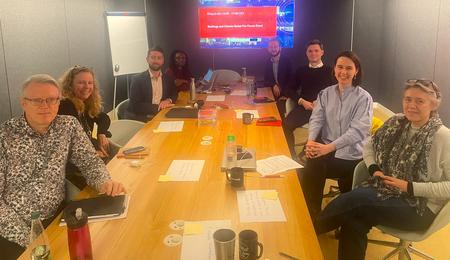
As highlighted in the Declaration, collaborative action is essential to drive down emissions in the built environment, as well as overcome existing gaps in efforts. We are already off track, with emissions in rising rather than falling. To address these challenges effectively, the Declaration outlines some key objectives, two of which particularly stand out: increasing the “resilience, efficiency, and sufficiency for all buildings, urban spaces, neighbourhoods and inhabitants”; and the necessity to “design, build, operate and manage all-round sustainable, culturally, functionally, socially and economically climate adapted, resource efficient, zero-emission, healthy, safe, flexible and resilient buildings.”
These objectives highlight the complexity of the buildings sector, and the solutions required to overcome the decarbonisation challenges standing in our way. Yet with every step forward, by working together on building renovations and energy efficiency, we bring global climate goals closer to our grasp. We welcome the declaration’s calls for collaboration throughout the buildings value chain. In particular, national and subnational governments must now show leadership, by ramping up rates of improvement on energy efficiency in their own buildings, introducing ambitious energy performance standards and adopting building policies that align with a measurable 1.5 degree pathway – including through their Nationally Determined Contributions (NDCs).
Urgency is now key, and that was sadly missing from the Declaration. 2030 is just six years away, and we need to half emissions in the built environment by this date. That’s why we’re urgently calling for collaboration across all levels of government and business, backed up by strong policies, so that change can happen outside of restrictive silos. We can’t afford for emissions from buildings to keep going through the roof.
Andrew Forth, Senior Manager Industry, Climate Group – Unapologetic impatience is needed to drive the decarbonisation of construction materials
Last week’s Buildings and Climate Global Forum was an important and necessary intervention which recognised the critical need to reduce greenhouse gas emissions from buildings and the materials we use to build them. Across the sessions, meetings, and rich conversations held, it was encouraging to see growing awareness of the need to address the environmental impacts of steel and concrete. And it was great to see examples of cutting-edge projects that are happening globally right now. But, despite these initiatives, the widescale lack of urgency is worrying.
Demand for construction materials will only continue as our populations continue to rise and urbanise. Steel and concrete production already accounts for around 15% of global emissions. We need to quickly grasp the necessary speed and scale of action required to tackle building emissions. Examples of good practice, while rightly celebrated, must become the mainstream, the expectation, the requirement – and quickly. This is why it’s pleasing to see a focus on knowledge and capacity building and sharing of best practice in the Ministerial Declaration, which will help to unlock this.
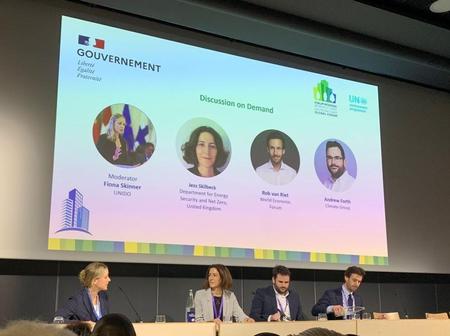
A striking aspect of the conference was its critical reminder of the ‘whole system response’ needed to ensure the foundations of tomorrow’s society are built on solid, sustainable ground. With our SteelZero and ConcreteZero members, we’re playing a critical role driving the clear message of demand for low-emission steel and concrete. But product manufacturers, project financiers, regulators and the public sector also need to push each other to go further and faster.
We therefore welcome the Declaration and ministers’ recognition of their responsibility to support decarbonisation of buildings and construction materials. By specifically promoting green procurement, the development and use of low-emission construction materials, regulatory frameworks, and the need for product standards, it offers a framework from which governments at all levels can enable decarbonisation. But we urgently need to agree on the finer details and translate this into action. The elephant which was very much in the room was the need for data transparency to enable this work to happen.
Without a clear, aligned, irreversible roadmap on the specific product and scope 3 performance standards to demand, the regulations to be put in place, and actual procurement principles required by all parties, we create room for inaction (especially in the face of challenging economic landscapes) which we can ill afford. Therefore, the Forum offered hope for progress in the spirit of multilevel collaboration. But it must be the foundation upon which we start real action with an unapologetic impatience demanded of ourselves and from each other. There can be no ceiling to our ambitions.
Urszula Kasperek, Senior International Advocacy Manager - Entering a new era of multilevel governance in multilateral processes
Last week’s Buildings and Climate Global Forum was one of the first multilateral events to take place since COP28 and the announcement of the Coalition of High Ambition Multilevel Partnership (CHAMP). In the spirit of that announcement, Paris welcomed leaders from across all levels of government, with a dedicated Local Leaders Roundtable on Thursday.
Under2 Coalition governments Minas Gerais, Queretaro and Sonora were part of a 20-strong subnational contingent who jointly agreed key asks to national governments ahead of the plenary the following day. They specifically asked for the recognition of multilevel governance in the Forum outcome document, as the built environment is one of the sectors where subnational governments have a significant amount of devolved power.
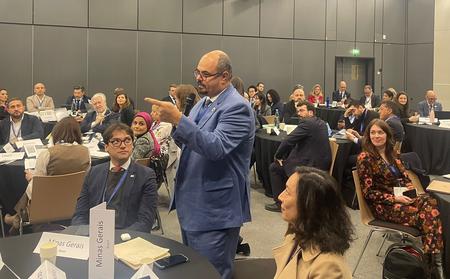
For those of us who advocate for multilevel governance recognition, the final declaration - endorsed by 70 countries - represents a new era. In many countries, jurisdiction over the buildings sector is divided across different levels of government and throughout the text, particularly in section 6, we can see a clear understanding that national governments are not the only ones responsible for implementing policies that drive buildings decarbonization. Through language such as "supporting the adoption of these at subnational levels", it recognizes we need national governments to remove barriers that may stand in the way of subnational governments acting. The declaration also includes strong language about local supply chains and local knowledge and skills development – all of which are critical in delivering a strong buildings decarbonization agenda.
However, while section 7.2 establishes a new ‘Intergovernmental Council for Buildings and Climate’ facilitated by the Global Alliance for Buildings and Construction, it misses a valuable opportunity for multilateral engagement. It does not explicitly allow subnational governments to be part of the Council. It offers an opportunity for them to join future "Buildings and Climate Global Forums", but it does not give them a specific role in the operation of the Council. Such recognition would give the text a much stronger mandate for action.
Nevertheless, the Declaration is a great example of the evolution that multilateral systems are capable of when local and regional leaders come together at negotiations. Clear language around shared responsibility for the decarbonization of buildings should drive greater ownership and action from all levels of government. And this is needed because, although subnational voices are getting louder, we need much firmer and rapid action to be taken at state, regional and city level to avoid locking into building stock that is not fit for the future. Time is running out to implement the changes we need to create a more livable planet for future generations.
Time will tell how effective this Declaration is, however for organizations such as Climate Group and in our capacity as secretariat to the Under2 Coalition, it provides us with a framework to accelerate action in the buildings sector. This could include using existing vehicles such as SCALE (Subnational Climate Action Leaders’ Exchange), projects, knowledge exchange and advocacy across different levels of government – all with business stakeholders supporting this transition. In this respect, the Declaration should be just the first of many this year reflecting a spirit of inclusivity and clear solutions involving subnational governments. Only this will enable us to deliver climate action, fast.
